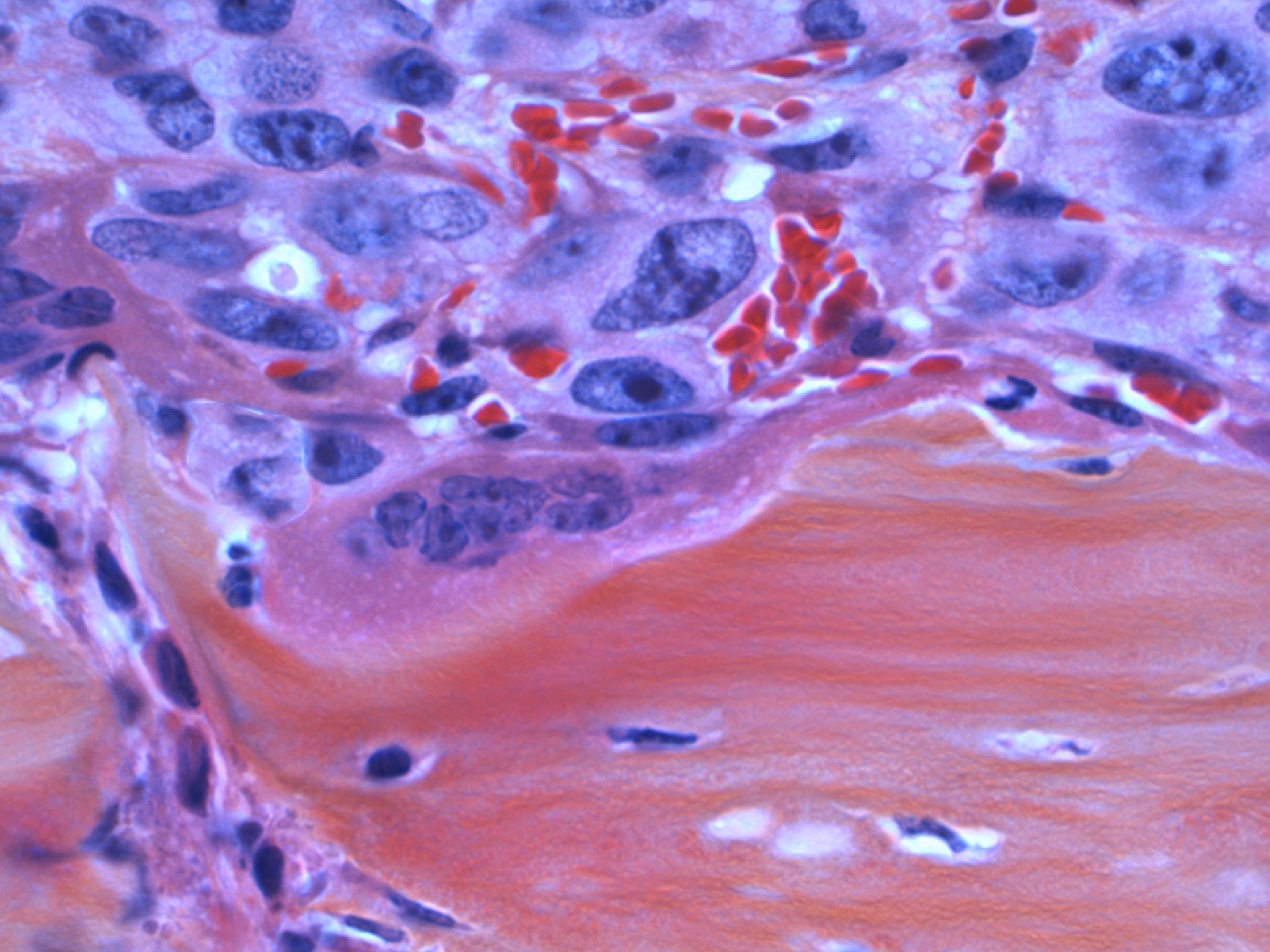Our research into bone cancer
Our work on bone cancer focuses on improving patient survival and prognosis. Thanks to our research, we can now detect both high-risk patients and new targets for cancer drugs.
We have led pioneering research into multiple myeloma, the most common type of bone cancer, and one that is on the rise in the UK.
Header image: Cancer spreading to the bone, Image credit: Khalid Mohammad, Theresa Guise
Our progress against bone cancer
Genetic testing
Our work on bone cancer has led to genetic test that can identify people who are at high risk of multiple myeloma, which occurs in the bone marrow, as well as patients whose cancer is more likely to become aggressive at an early stage.
Our researchers also developed a test that predicts whether multiple myeloma patients will get nerve damage after treatment – a common side effect from myeloma drugs, such as thalidomide.
Risk genes
We were the first to discover that the risk of multiple myeloma is linked to certain genes. Professor Richard Houlston led a study that identified two parts of the genome which are more common in multiple myeloma patients and could be responsible for up to 37 per cent of cases in Europe.
Another study headed by Dr Charlotte Pawlyn found for the first time that overexpression of a specific gene was associated with more lethal myeloma in patients, reducing their survival chances and making treatments less effective. This gene could be a new target for therapy for a range of cancer types, not limited to myeloma.
Drug targets
Cancer cells can stay alive and continue growing in the body, even under stressful conditions. Our researchers tested new drugs – one of which was discovered at the ICR – that can block the stress response that keeps cancer cells alive. These drugs could be very effective against the bone marrow cancer myeloma.
Bone cancer clinical trials
In our Clinical Trials and Statistics Unit (ICR-CTSU), we translate cutting-edge science into quality clinical trials that can transform cancer care.
Here are the latest trials that include patients with bone cancer. If you or someone you know is a bone cancer patient, then you may be able to support our research by taking part in a trial that’s “Open to recruitment”. Or see all clinical trials.
Your support helps
As a UK charity, our life-saving research relies on the generosity of individuals and organisations. Our supporters help us make a difference to the lives of cancer patients and their families everywhere.
Bone cancer discoveries

New AI models set to revolutionise medical imaging and transform cancer care

